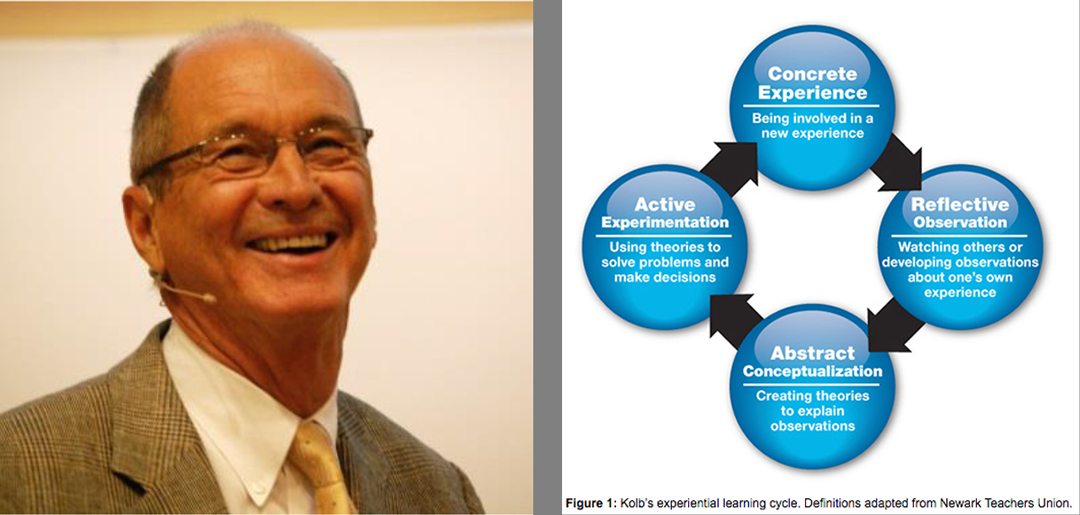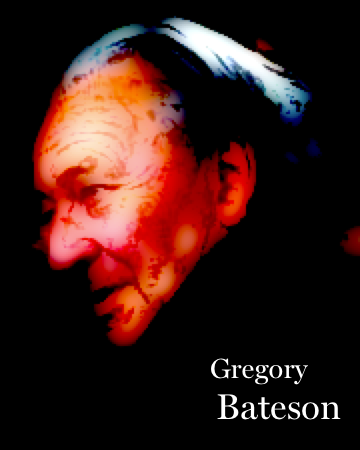Dave Kolb and I enjoyed the longest conversation we ever managed to conduct over the fifteen years we’ve been friends and something like, but not really exactly like, colleagues. Our shared interest is the experiential learning theory* he helped conceptualize in the late seventies. He is its principal conceptualizer over the past thirty-three years, a span that began with the publication of the cornerstone presentation of this theory, Experiential Learning, Experience As the Source of Learning and Development(revised 2015).
When Dave signed the copy of the revised edition he gave me, he named us fellow travelers. I like it. Our paths have crossed in conferences and symposia, in workshops and, especially on the softball field on Sundays in Cleveland Heights, at 10am. I encountered Dave and Alice Kolb, his wife and most essential collaborator, back in 2002 when I ventured out to thie softball field for the first time, believing at the time that I was going to assist a documentary filmmaker who wanted to make a short about the Free Play Softball League the Kolbs started as an experiment in open system and experiential learning on the old Adelbert quad.
Yet, the three hour dialog we built together this week was the longest sustained chewing session we ever attempted or accomplished. This moment was favored by dave and Alice being between book writing projects, or, otherwise freed from the usual bearing down of their research agenda. I know this from their presentation at the June conference, a presentation offloaded into a nicely organic collaborative discussion about several of their current interests.
In our dialog, after we covered sundry subjects of interest to aging men and softball teammates, we latched onto one of several subjects that interest me as an independent scholar an fellow traveler. As it turned out, this subject, where is the ongoing theory-making in experiential learning theory happening right now, had come up between Dave and Alice on their morning walk the day Dave and I settled into our chairs on his spacious front porch. After we noted that there aren’t many scholars besides the Kolbs that you can point to, we started to ideate together on shaping (just the beginning) of what the extension and further elaboration of experiential learning theory might grapple with.
This is a big subject. We touched on examples from our different interests that bend the theory-in-use a bit differently than the most secure current conception of the theory supposes is phenomenally the case. This is not a disruptive tangent to the theory because one of the enhancements of the theory would, were it to begin to be formulated, configure the theory to flex more to particular contexts. For example, my creative process does not align with the cyclical or spiral process of the current theory, rather it oscillates between concrete experience and (what I would term,) spontaneous revision, a quality of active experimentation.
We made our beginning in any case. It would be really fascinating to continue and especially to put the handful of inspired (by theory!) persons in our community or out there in the wild together, to do some chewing.
Nowadays, almost all the action in ELT is rooted to its use in consulting, pedagogical, and coaching practices. This usefulness has put evaluative and assessment tools close to the center of those activities. The biggest impact extensive new theory-making could have on current day practice would result from theorizing context-dependent, and therefor distinct differentiations according to context pressures, of the theory-in-practice. This could be given by, for example, idiographic or qualitative difference-making that is focused on particular situations and their particularities. Certainly, from the several ways I may contextualize my own practice as an experiential learning endeavor, I’m able to lightly suggest that enactive, or social cybernetic, or, negative-capable, or, neurophenomenological, or ecological, perspectives, each create different and cogent and positive pressures when these outlooks are used to describe particularities given in specific situations.
Dave and I have noted that the enactive perspective is very sharply appropriate to elaborating a bit more about the instantaneous presence involved in reacting in an embodied and learning ‘full’ way in response to being thrown a pitched ball while acting as a batter.

The triangle at the bottom of the ELT schema reflects a kind of liminal or boundary condition for holding theorization away from its being made practical. Theorizing is begun as an impractical matter.
*Kolb’s Experiential Learning Theory is a theory of learning, not a theory of learning-by-doing. It would pose itself as a meta-theory of learning-by-doing were learning-by-doing ever to be rigorously theorized.
(h/t to Mai P. Trinh for first entertaining my sense that ‘where are the theorists?’ was an interesting question.)




